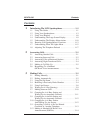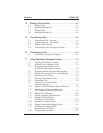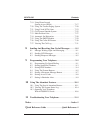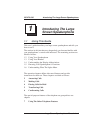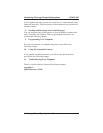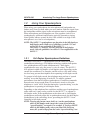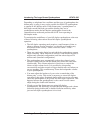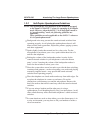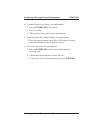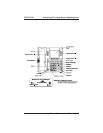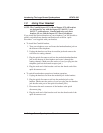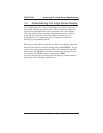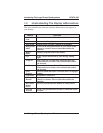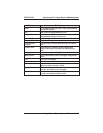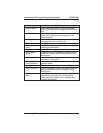
1.2.2 Half-Duplex Speakerphone Guidelines
NOTE: The speakerphone user guidelines in this section do not apply
to the Impact SCS 8412F-** when it is operating in full-duplex
mode. However, when the 8412F-** is in half-duplex mode or
in “speech training” mode, the following guidelines are
applicable.
These guidelines are also applicable to the 8412S-** whenever
it is in speakerphone mode.
•
Background noise may prevent the sound-activated switches from
operating properly. Avoid placing the speakerphone where it will
detect sounds from typewriters, keyboards, printers, paging systems,
and other equipment.
•
Speak slightly louder than normal and in a clear voice. For the
microphone to best detect your voice, speak within three feet of it
and face the telephone.
•
Raising the volume of the loudspeaker makes it easier for the
sound-activated switches in your telephone to select the distant
party’s voice. Lowering the volume of the loudspeaker makes it
easier for the switches to select your voice.
•
Since the system takes several seconds to provide the best switching,
constant sound patterns—such as elongating your words and playing
externally-supplied music—may prevent the sound-activated
switches from operating properly.
•
Place the telephone on a hard surface and away from table edges. Do
not place the telephone in corners or enclosures. Do not let
obstructions come between you and the microphone. Rooms with
hard, flat surfaces that reflect sound may affect the sound-activated
switches.
•
If you are using a handset and the other party is using a
speakerphone, avoid breathing heavily into your microphone. Avoid
other sounds that may affect the distant telephone’s sound-activated
switches.
•
In some situations, such as when either you or the distant party is in
a noisy environment, you may have to lift your handset to ensure a
clear conversation.
Large Screen Speakerphone Manual 1 – 5
GCA70–349 Introducing The Large Screen Speakerphone



